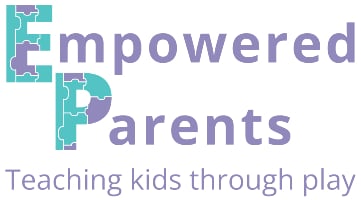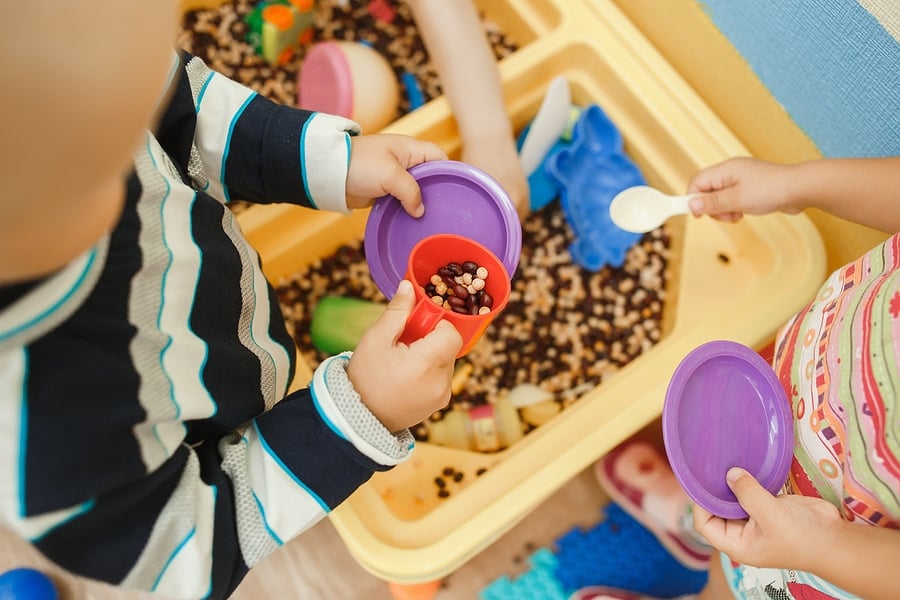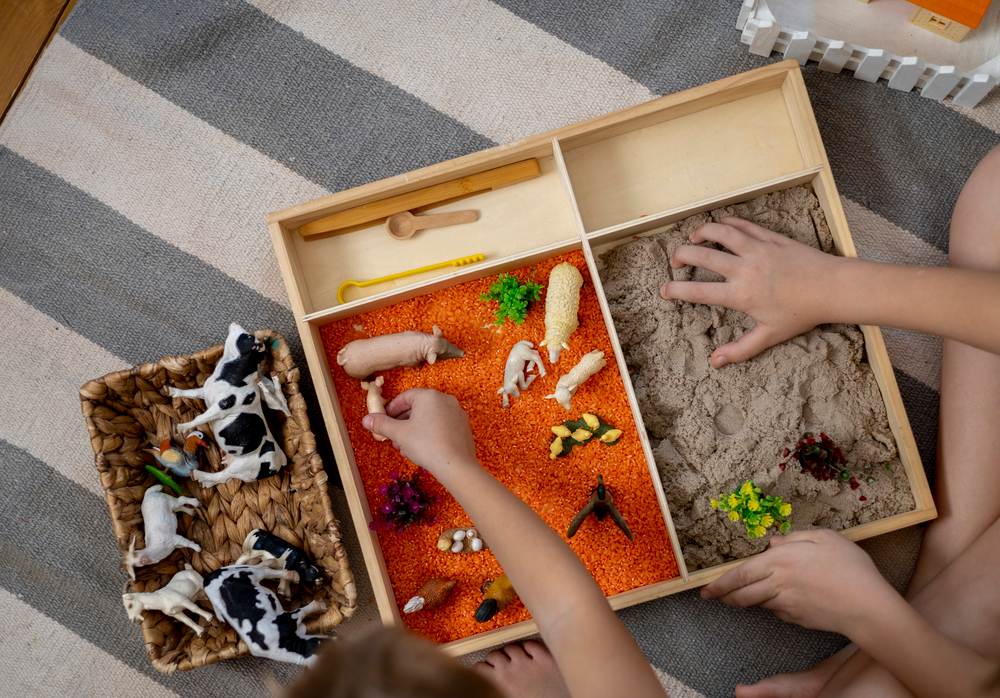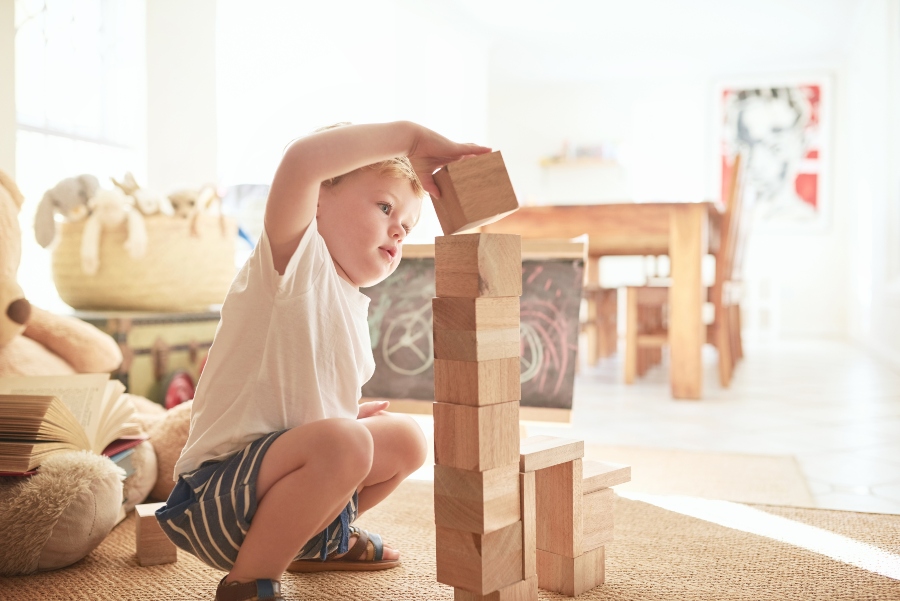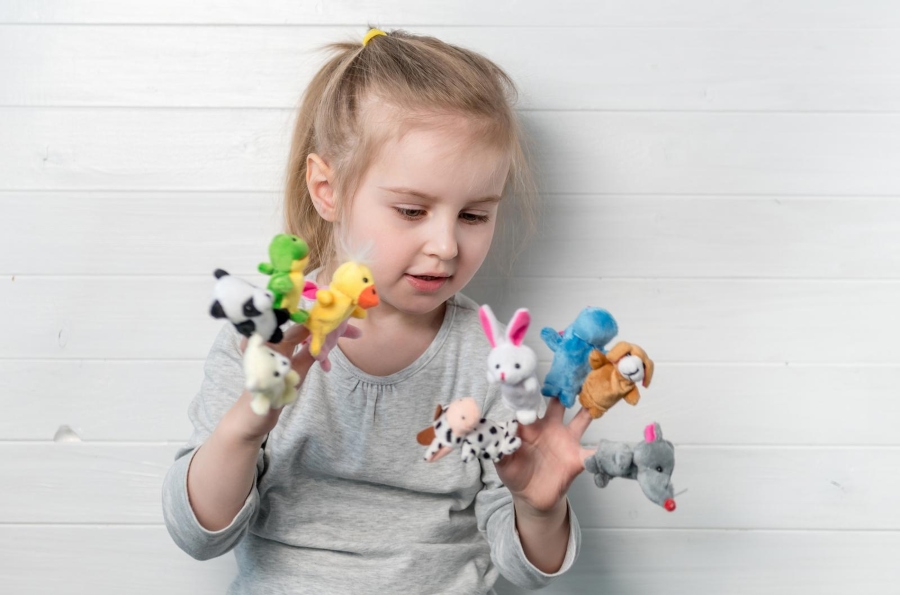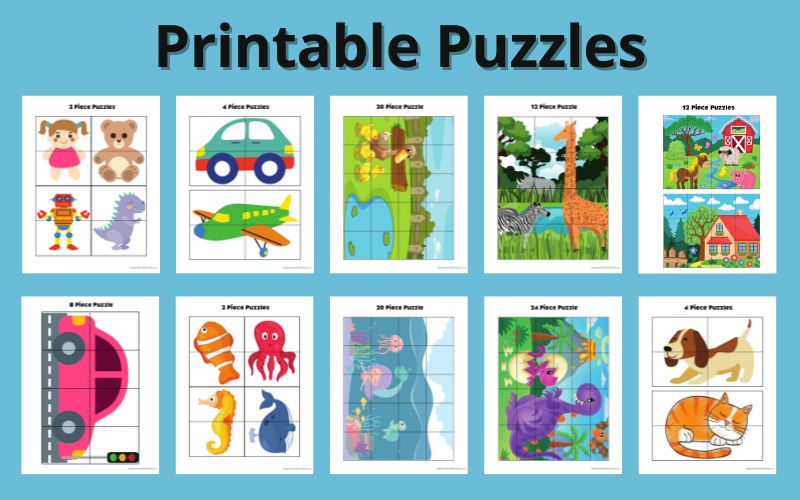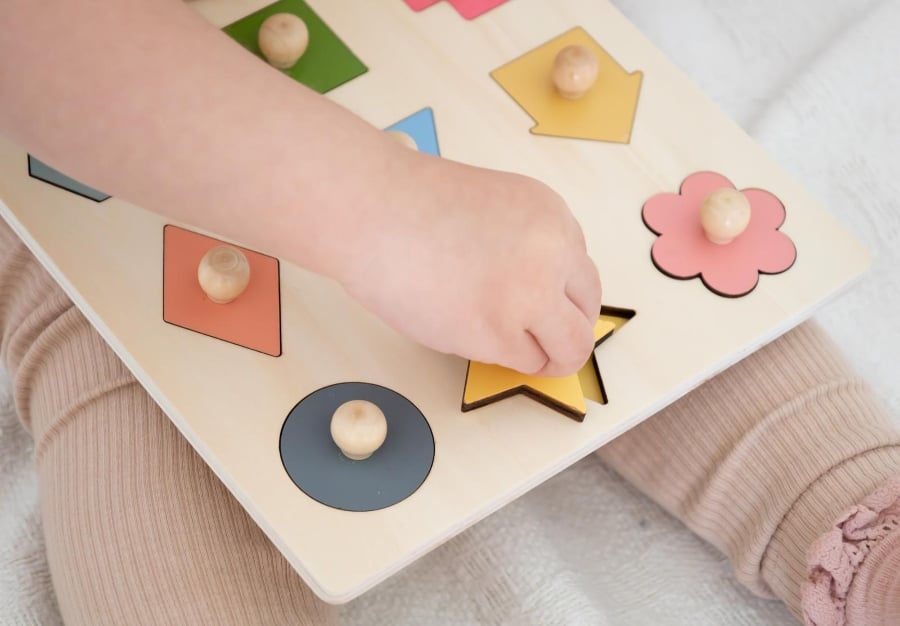Setting up sensory stations in your home or classroom can be a fun way to engage children of all ages in sensory play. Here are 38 simple ideas to try, followed by some tips on how to set up sensory stations. P.S. This post includes a handy printable of these activities. What is a Sensory …
Learning Through Play
Play is far more than just fun and games—it’s a powerful tool for learning and development in early childhood. Through play, children explore the world, develop critical skills, and build the foundation for lifelong learning.
Whether it’s building with blocks, engaging in pretend play, or simply getting messy, each type of play offers unique benefits.
Dive into this collection of articles on the importance of play and find simple play activity ideas:
- How Do Children Learn Through Play? The examples in this article explain exactly what children are learning during play activities like building puzzles, playing in the sand or building a block tower.
- The Types of Play: Understand the typical stages of play (such as solitary or social play), as well as the different types of play (such and language or pretend play).
- The Top Educational Toys: A teacher’s guide to the 10 most educational toys of all time.
- Check Out These Fun Play Activities:
-
- Role Play Ideas: Use these 30 ideas as inspiration for your next pretend play set-up.
-
- Sand Play Activities: Young children love playing with sand and it is one of the best sensory activities. Here are 30 simple sand play ideas
-
- Water Play Activities: Here are 15 fun water play ideas that will delight toddlers and preschoolers.
-
- Fun in the Bath: 18 ways to make bathtime even more fun!
-
- Messy Play Ideas: Engage all the senses with these 10 messy play ideas your kids will love.
-
- Sensory Stations: Use these 37 ideas to set up simple sensory stations in your class or home.
-
- Construction Play: Have you tried all these different types of construction play with your children?
-
- Printable Puzzles: These printable puzzles for kids are instantly downloadable and are a great addition to your puzzle collection at home or in your classroom. They are also perfect to use as a cut-and-paste activity.
- Teach children concepts through play and hands-on activities:
-
- Learning Colours: Colour identification is an important part of a child’s development. Here are 31 easy activities your kids will love.
-
- Science Concepts: Teaching science concepts in early childhood should be interactive and fun. Here are 6 ways to do it.
-
- Sequencing: Finding the next logical step or ‘what comes next’.
-
- Matching: Finding things that are identical or ‘the same’.
-
- Seriation: Arranging things in order – usually size – and finding what comes next.
-
- Sorting and Grouping: Finding which things belong together and share common characteristics.
Young children love playing with sand and it is one of the best sensory activities. During the early years, kids learn through play and the sandpit is the perfect place for fun, learning and discovery. Here are 30 simple sand play activities and ideas. Some are new activities, and some are simple variations of regular …
As parents and teachers, we often witness the incredible ways children learn through play. But did you know that play offers more than just entertainment? It is key to unlocking a world of social benefits that shape a child’s early development. In this article, we delve into the importance of play in early childhood and …
Are you looking for a creative way to keep your little ones entertained while fostering their development? Look no further than the magical world of sand and water play! There are so many benefits of water play, such as: Here are 15 fun water play ideas that will delight toddlers and preschoolers. P.S. This post …
In the world of play, joy and learning are intertwined. It is during play that children build their physical, intellectual, social and emotional skills. In this article, I delve into the profound emotional benefits of play in early childhood. From building confidence to nurturing happiness, let’s explore how play impacts emotional growth in young children. …
What is the role of play in cognitive development? Is it really that important for developing intellectual skills? Play is my favourite topic to write about. Not only do children come alive when they play, but they also learn more than you can imagine. While seeing a child sitting at a desk with a pen …
If your kids go out to play and return looking muddy, or regularly come home from school filthy from head to toe, chances are they have been very busy playing with sand and water. Children gravitate towards messy play for good reason – it’s so fun and a great sensory experience. The good news is …
The early years are a time when children learn through play and exploration. They develop in all areas and they build foundational skills that will set them up for schooling and life. Holistic development includes physical, cognitive, social, emotional and spiritual development. Here is a simple explanation of the physical benefits of play, as mentioned …
Early childhood is a time of immense learning and discovery. As long as children are playing, they are learning. To a young child, play isn’t a break from learning, it is learning. Jean Piaget called play the “work of childhood” and many other theorists such as Lev Vygotsky, Maria Montessori, Mildred Parten, Friedrich Froebel and …
These printable puzzles for kids are instantly downloadable and are a great addition to your puzzle collection at home or in your classroom. They are also perfect to use as a cut-and-paste activity. There are a variety of basic jigsaw puzzles for toddlers and some more challenging multi-piece puzzles for preschoolers. Ranging from 2 pieces …
Puzzles are great educational toys for kids. With such a variety of different types available, you may be wondering which are the most suitable and beneficial for your preschoolers at home or at school. Here is a breakdown of the best puzzles for preschoolers between the ages of 3 and 5 years (find the best …
Puzzles are one of the most educational toys but there is such a variety of different types, you may be wondering which are the most appropriate and beneficial for your toddlers at home or school. Here is a breakdown of the best puzzles for toddlers between the ages of 1 and 3 years. There’s no …
